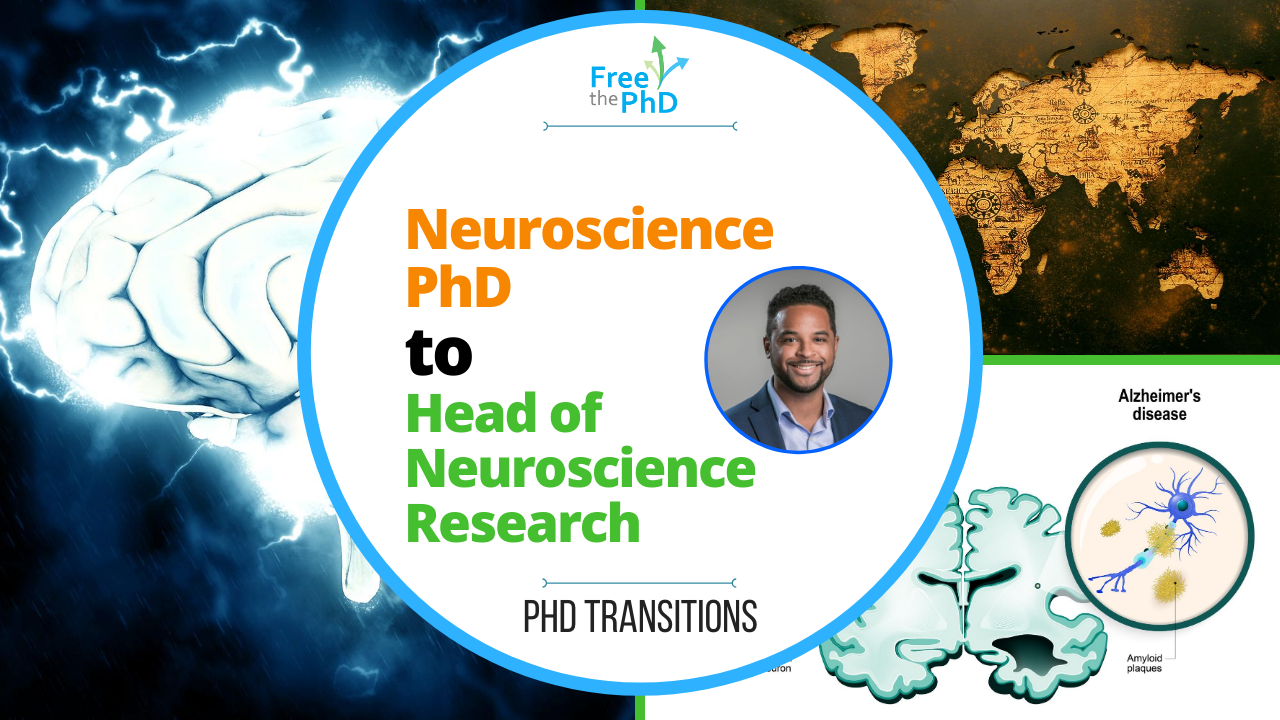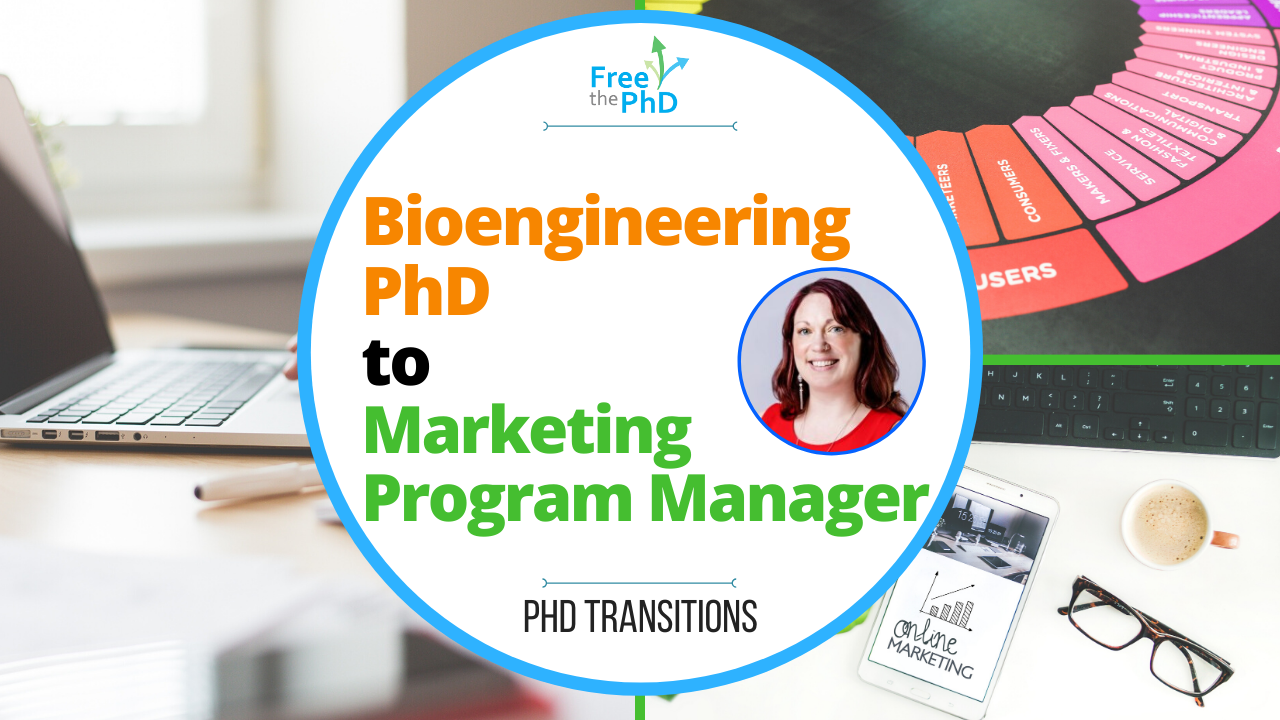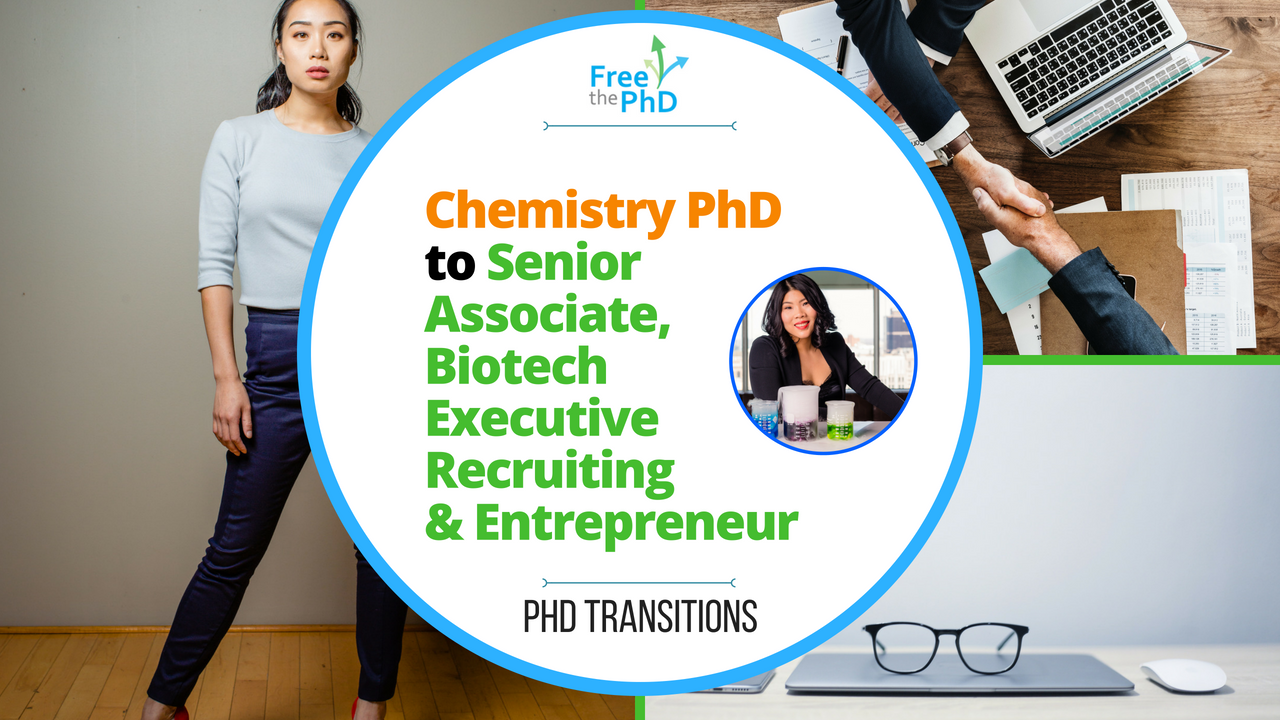We’ve all been there. You’re passionate and driven on a topic – but not sure where to go from there. Not sure what the next steps are to pursue this goal. Dr. Jermaine Ross recounts how his love for science, networking, his openness to opportunity, and great mentors ultimately helped him transition from undergrad to graduate school, and from there taking on his position as the Head of Neuroscience Research at Immuneering Corporation.
Why did you choose to do a PhD? And what did you study?
My passion has always been science. I had a lot of mentors growing up in the field of science that pushed me at each career stage. That was always critical for me and still is pretty critical. I got my bachelor’s at University of Michigan in molecular biology. I had a mentor there who knew someone at the NIH, and that connection blossomed into an opportunity to work at the NIH as an Intramural Research Training Associate (IRTA). I spent a couple of years there thinking about what the next steps were. I thought I wanted to go to med school, but it became clear as I was doing more and more science that this career and enjoying life sciences was a path forward for me. It was work I loved doing, and my mentor encouraged me. He was like, ‘Look, you can’t be an IRTA forever, Ross. You gotta be something a little bit more advanced if you’re going to take this seriously.’
He encouraged me to do a PhD. At that time, I didn’t know what field to really go in. I was studying neuroscience, but clearly there are other options out there. And funny story, I met Vay at the neuroscience conference in San Diego way back in like 2006/2007. We connected through another friend and they both said, ‘You’ve got to do this program [Graduate Partnership Program]. You’ll get to have the opportunity to still continue research at the NIH.’
Why neuroscience? I first started to learn about neuroscience during that time at the NIH, because I didn’t fully understand the discipline. The more I learned about it, the more I understood that we didn’t know a whole lot about the brain. And that became a great opportunity to explore this unexplored territory and understand how cognitive function works, how brain development works, and it’s still my passion to this day to understand how the brain works.
Would you mind broadly explaining what your project was in grad school?
We were trying to understand how genes were regulated during neurodevelopment or neurogenesis through the control of what’s referred to as DNA enhancers. We were trying to decode that language which is embedded in those enhancers to control gene expression during development.
When did you start thinking about your next steps, post graduate school?
I think this is an interesting question. Maybe a little bit too late. Part of the burden is that you spend four to five years trying to get through this process of doing original research and proving yourself as a scientist, and writing the thesis and defending that by the end, you’re pretty exhausted. Right? You’re preoccupied with that process.
It’s not uncommon for students to kind of avoid that second stage because they are just overwhelmed. For me, it was really in that final year where I was like, ‘What am I going to do after this?’. Obviously, as a graduate student, you have a number of options. You can go into academia, industry, or even stay with the government, or try to find something outside of those industries. For me, it was very helpful to have a great mentor and to have great career resources at the NIH. It was during that phase that I started to take advantage of those resources, which is important, because those resources don’t just end up in your lap. Sometimes they do, but most of the time, you have to seek them out.
What options did you weigh and what factors influenced your decision?
When you’re a graduate student, you don’t have a clear vision of what’s out there. I mean, you’re in the bubble within your lab or your university. One of the things that I wanted to maintain was a sense of work-life balance, as well as having creative control over my project and exploring and answering questions. So I looked at that and also looked at the financial aspect of it. These different paths have different opportunities and different pluses and minuses, such as pay and availability. With academia, there’s only so many jobs – so it was really about building that landscape of what was out there.
I think oftentimes, graduate students are scared into this idea that there really aren’t that many jobs out there — like there’s one job per hundred candidates. I had to look at each sector – government, academia, pharma, and I had to weigh what would be my likelihood of success if I was to make that next step to any of those options. So those are the kinds of things I was thinking about – job availability, financials, location, and my qualifications for those positions.
How did you make your career transition?
I was overwhelmed. I took advantage of the resources at the NIH, and remember going to this guy who said he’d looked at over like 10,000 resumes in his life. So I knew I was in the right place. I took a step back and looked at exactly what I wanted out of the next stage of my career. And I did that by just taking a vacation. I took a trip around the world. It helped kind of clear my head a bit and focus on exactly what I wanted to do for the next step.
One thing I thought was supercritical was actually setting up a LinkedIn account. I knew that it was important to project who I was to potential recruiters. Interestingly enough, two weeks before my trip, I receive a call from a recruiter at Teva Pharmaceuticals that had established a relationship with the company that I’m at now, Immuneering. They told me about an open position, and I checked the interview and of course I loved the team and the company. I explained my situation and we worked it out so I could have a later start date. In many instances that would not have been the case, but sometimes things just work out!

So what is your role at your current position?
So right now I’m the Head of Neuroscience for Immuneering and the Principal Investigator of the neuroscience division at our company called Alleo Lab. Our focus is to identify therapies for neurodegenerative diseases, including Alzheimer’s disease. In addition to that, I also am the board member for the Alzheimer’s Association here in New York City. In my spare time, I see patients at the Memory Clinic to connect what we’re seeing at the clinical level to what we’re seeing at the data level on these patients. I serve a managerial role as well as a data scientist role. I actually wear many hats, but those are the two biggest hats I wear.
Would you say your day varies greatly, day-to-day?
Absolutely. When I first started at the company, I got put on a client facing project, working directly with pharma partners. That was really high-paced. It was much quicker than I was used to, working as a graduate student. The requests that were coming from our clients were quite unique, and they would change from week to week, month to month, project to project. As I’ve settled into drug discovery and leadership, it’s still changing because you have so many variables when it comes to developing therapeutics. But nonetheless, you still have a certain pipeline or a certain strategy for going from preclinical to clinical. There is some structure to it that we obviously follow, but within the day-to-day, it’s definitely pretty different.
What are the aspects of your career that you enjoy and what were you looking for when you transitioned?
I think that’s absolutely important to recognize what you want out of your life and how that kind of frames around your career. I think part of the great thing about being at this company in particular, is that we get unlimited vacation. That’s a magical plug for my company. It’s a great perk to have and to be able to step away, reset, relax, and be with your family and friends. I think that work-life balance is great, and you get that typically with smaller companies like this.
But having said that, with my job, I am trying to find medicine for folks who have Alzheimer’s disease. My father passed away a couple years ago who had Alzheimer’s, and so this presented a great opportunity to help folks who are suffering from this disease as well as the families who are dealing with it. So it’s having that immediate impact that has motivated me to find a cure here.
When I mentor other people who are doing this kind of transition, I ask them to be honest with themselves – ‘Do you want to move to rural Kansas, if that’s where the lab that’s doing your work is going to be? Is that going to be good for you?’. And sometimes that’s not always the case, especially if folks have partners, or they have families that they have to take care of. It’s harder. So being able to move to a metropolitan city like New York City, that was very important for me. So location, as well as the topic that I was able to address, mattered.

You sort of began answering this question, but do you have any advice for fellow academics trying to transition?
I’m a little biased, but I think at the core, find a mentor if you don’t already have one. Find a stable mentor that can provide you with advice to lead you. Typically, if you have a good mentor, they’ll have connections for making that next leap. For example, my mentor at Michigan knew someone at the NIH and that worked out well. My mentor at NIH knew somebody at Brown University and they introduced me. At every stage I had a great mentor who led me in the right direction. So find a mentor.
Then identify your strengths. That’s going to be the wind in your sail, pushing you in the right direction, whether or not it’s doing laboratory work, or managing projects, computer programming, etc. (I’m biased, I think computer programming should be on everybody’s resume or even just basic statistics.) I think that recognizing what the field that you want to go in is looking for is absolutely imperative, and then you can translate that in your CV or resume.
As I said before, get on LinkedIn. Network your butt off. I still have so many boxes of business cards that I don’t throw away, just in case. Networking is absolutely imperative. Like, for example, without Vay I probably wouldn’t even have known about the GPP Brown program if it wasn’t for her, and that was networking. So absolutely get yourself out there.

And lastly, what are some misconceptions about working outside of academia that you would like to debunk?
It’s all contextual. Some misconceptions are kind of true, depending on what situation you’re in. I would say that one of the things I was told is that if you work in pharma, you don’t have control of your project; that your question is well defined, there isn’t any room to breathe and it is a very boring lifestyle. That’s sort of true. But there’s a little bit more to that. I think when working with pharma partners, it was clear that there are a lot of very great scientists or physicians on those teams that had a question and got the financing to answer those questions. Now, obviously, that comes with deadlines, but they still have creative control over what they are going to do next because it’s science, right? There’s no right or wrong answer. So I think that’s one misconception – that when you go into pharma, you’re not a scientist. You’re just like hands. I would disagree: everyone has an opportunity to play an important role in pharma.
The other is that the pay is always good. You go into pharma, you get a base salary, and it’s usually higher or lower than academia. It depends. It depends on whether or not there’s room for vertical movement or promotions, and really depends on the company. You need to be very aware of what the opportunities are. And lastly, [a misconception is] that you have to know everything on the first day, or within the first week, or in the first six months. Or you’re necessarily going to use your degree [in your profession]. Usually when you do a PhD, it is on a very specific question. So most likely, that question doesn’t apply, either to a pharma project or even maybe an academic project. So you have to learn to be flexible. And again, identifying your strengths and how you can translate those skills to the next level I think is important. Don’t get hung up on getting to know the latest software or latest whole genome sequencing technique. Just go in and be honest, and I think you’ll come out okay. For example, when I started with Immuneering, I got put on a project within my first month where I was completely confused. I reached out to my team and I asked questions. And eventually the project worked out well. But for those first two months, I thought I was completely lost. I thought I was doing a terrible job, but it turns out, I was okay. People have ways of evaluating your success and giving you room to grow and to adjust. So, I always tell people, don’t be afraid of that next step. Climbing that next stage or transitioning, that’s the final experiment. So it takes a couple of tries here and there. Then you put in some controls – you know, talk to some people, but eventually you’ll get it. Just being resilient and having a positive mindset goes a long way.
By Camillia Monestime, Ph.D.
Got questions or comments, or aspire towards a similar career path but unsure how to get started? We’ve helped PhDs like you to land research, consulting, science communication, commercial, and client facing jobs with step-by-step, realistic guidance, based on our first-hand experience working away from the bench. Join our Free the PhD Careers Community for personalized help with your resume, networking, interviewing and skill-building to find a life you love outside academia!




